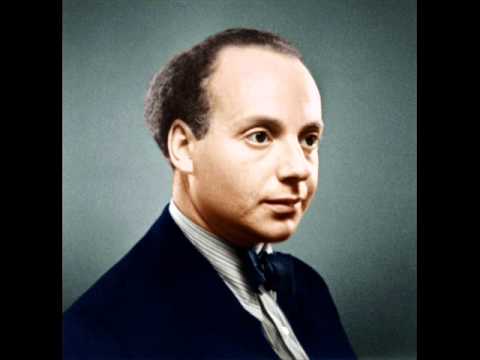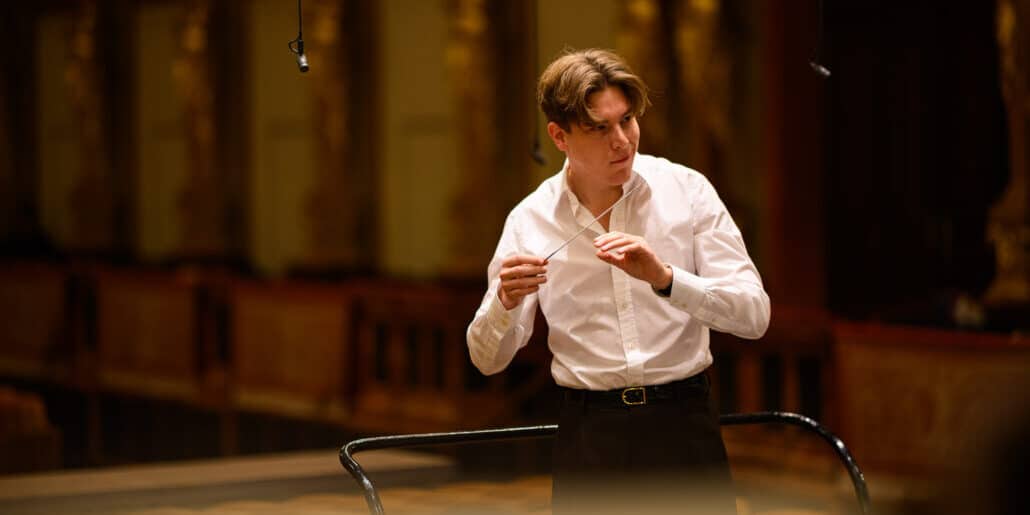Berthold Goldschmidt is remembered in Germany on Holocaust Day
mainYesterday’s broadcast on NDR covers both his flight from Germany and his post-War suppression by the serialists.
Lovely to hear his voice again (in German).
Listen here.


Yesterday’s broadcast on NDR covers both his flight from Germany and his post-War suppression by the serialists.
Lovely to hear his voice again (in German).
Listen here.

The King has sent a message of support…

Rudolph Vrbsky, principal oboist of the National Symphony…

Message from the BBC Symphony Orchestra: We regret…

The over-booked Finn had a hard time at…

Session expired
Please log in again. The login page will open in a new tab. After logging in you can close it and return to this page.
Excellent programme. It should not be forgotten that it is not only composers like Goldschmidt and Walter Braunfels who suffered a second excommunication from music life after 1945, but that also today there is no single serious and talented composer in Germany who dares to ignore the established Klangkunst prescription and writes according to musical, instead of purely sonic, values. Goldschmidt is nowadays, like Braunfels, ‘liberated’ from entirely undeserved obscurity, exercised first by criminal nitwits and after WW II, ‘progressive’ nitwits, but it is a historical liberation which leaves the current lockdown on new music intact – it is ‘safe’ because it is all about ‘the past’. But it can function as the beginning of the German struggle to get away from the postwar moralistic taboo that a postwar contemporary composer HAS to be a Klangkünstler to avoid the suspicion of being a fascist, however catastrophic the result, because the German tonal tradition was considered associated with decadence and fascism. While everywhere else in the world new music explores other paths, from the most primitive via the most vulgar to the more effective revivalist trends, in Germany there still is an immense ‘Berührungsangst’ around its own wonderful tradition – Bruckner was an antisemite, Wagner inspired the Second World War and the Holocaust, Strauss collaborated with the regime, etc. etc. so their music is antisemitic, warmongering, etc. etc. but you can still perform it because it is safely locked-up in the glass box of history. Use it as contemporary examples brings all those associations suddenly close-by.
As Alex Ross very aptly said in his ‘The Rest is Noise’: ‘The great German tradition, with all its grandeurs and sorrows, is cordoned off, like a crime scene under investigation.’
Pity that AR is his big old book doesn’t spare a thought for Goldschmidt or Braunfels.
well said John!
It’s about time.
It’s about a time, indeed!
About Goldschmidt (and he others):
https://basiaconfuoco.com/2018/09/04/between-two-worlds/
A whole world of music being rediscovered…. whether it is all very good or not, is irrelevant: some of it is certainly very good, and the point is that it all is part of the reality of music history. There has been an aggressive process of distortion and suppression in the last century where totalitarian regimes were imitated by post-1945 volonteer totalitarian war mongering disguised as modern music establishments.
http://www.musicweb-international.com/books/Pauls_two_centuries_in_one.pdf
And that’s what I wrote a few years ago:
“At the end of the 1980s the music-loving world (and here I mean not only listeners, but also publicists, reviewers and music experts) found out that there was more between heaven and earth, or, since we are talking about music: between Strauss and Stockhausen. People began to realise that an entire generation of composers had been deleted from the history books and concert halls. Just like that. And it was not _only_ the fault of the Nazis.”
https://basiaconfuoco.com/2019/01/25/entartete-musik-teresienstadt-and-channel-classics/
True….. a kind of information holocaust. Which shows the dark side of modernity, treating the arts as commercial commodity instead of reflections of the human condition. And that problem is still going-on, in different guises.
For instance, an artistic administrator from one of the major American orchestras recently said: ‘We’re really not interested in hearing from composers over thirty-five unless they’re already very established and have major ticket-office draw.’ I.e. ‘We don’t care a damn about music if we have to apply our own understanding to it’.
That’s America for you with it’s own short history.
To see and hear Goldschmidt, there’s and interesting feature on YouTube at https://www.youtube.com/watch?v=fFyRrNKiAYo. It’s a French programme with BG speaking in German (French subtitles). Definitely worth a look …